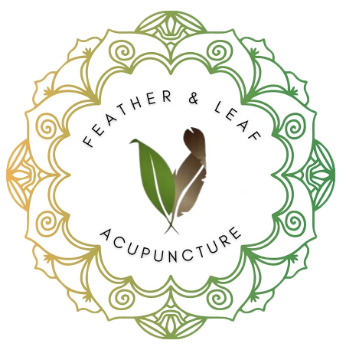What is acupuncture and what can it help with?
When most people hear the word "acupuncture" the first thought that comes to mind is needles. At first, this isn't the most comforting thought. However, many are shocked to hear that acupuncture is an ancient method of Traditional Chinese Medicine dating back thousands of years that has been used to treat a variety of conditions.
This ancient method comprises of using thin needles that are inserted in the skin on pressure points or in local areas where it is needed. The needles stimulate the body's nervous system and brain waves to balance out anything that is not working properly or at its most optimal. The job of an acupuncturist is to regain that balance so the body can properly function and heal itself.
Acupuncture can help with a number of conditions. Some of the most common conditions are any type of pain (chronic/acute), digestive issues, migraines, seasonal allergies, arthritis, sleep disorders, stress management, and skin issues. The list can go on. However, acupuncture doesn't just help to heal, it can help to relax the body as well. Having a stressful day or week? Come on in to release the tension. A consistent routine can help to maintain the body's overall wellness and keep you smiling. Let's discover how acupuncture can help you.
Needles and Nerves: Demystifying Acupuncture
Acupuncture. It's a word that often conjures images of tiny needles and serene, almost mystical healing. But what is acupuncture, really? Is it just an ancient tradition, or is there something more to it? Let's delve into the world of this fascinating practice.
The Ancient Roots:
Acupuncture is a cornerstone of Traditional Chinese Medicine (TCM), a system of healthcare that has been evolving for thousands of years. According to TCM, vital energy, known as "Qi" (pronounced "chee"), flows through channels or meridians in the body. When Qi is balanced and flowing freely, health is maintained. When Qi is disrupted or blocked, illness and pain can occur.
Acupuncture aims to restore the balance and flow of Qi by stimulating specific points along these meridians. These points, known as acupoints, are believed to have a direct connection to various organs and systems in the body.
The Modern Perspective:
While TCM offers a comprehensive explanation based on Qi, modern science is working to understand acupuncture through a biomedical lens. Research suggests that acupuncture may work by:
- Stimulating the nervous system: Needles inserted into acupoints can trigger the release of endorphins, the body's natural painkillers, and other neurotransmitters that affect pain perception and mood.
- Affecting blood flow: Acupuncture may improve circulation and reduce inflammation by influencing the release of chemicals that dilate blood vessels.
- Modulating the immune system: Some studies indicate that acupuncture can influence immune function, potentially contributing to its effectiveness in treating certain conditions.
- Activating the body’s natural healing abilities: By stimulating specific points, acupuncture may prompt the body to self-regulate and restore balance.
What to Expect During an Acupuncture Session:
A typical acupuncture session involves:
- Consultation: A licensed acupuncturist will take a detailed medical history and assess your overall health.
- Needle insertion: Thin, sterile, disposable needles are inserted into specific acupoints. The sensation is often described as a brief, mild prickle or a feeling of warmth or heaviness.
- Needle manipulation: The acupuncturist may gently manipulate the needles or apply electrical stimulation.
- Retention: The needles are typically left in place for 15-30 minutes.
- Relaxation: Many people find acupuncture sessions to be deeply relaxing.
What Can Acupuncture Treat?
The World Health Organization (WHO) recognizes acupuncture as an effective treatment for a wide range of conditions, including:
- Pain management (e.g., back pain, neck pain, headaches, osteoarthritis)
- Nausea and vomiting
- Allergies
- Insomnia
- Anxiety and depression
- Menstrual cramps.
It is important to note that acupuncture is often used as a complementary therapy alongside conventional medical treatments.
Finding a Qualified Acupuncturist:
If you're considering acupuncture, it's essential to find a licensed and qualified practitioner. Look for someone who is:
- Licensed by your state's acupuncture board.
- Certified by the National Certification Commission for Acupuncture and Oriental Medicine (NCCAOM).
- Experienced in treating your specific condition.
The Bottom Line:
Acupuncture is a time-honored practice that offers a holistic approach to health and wellness. While its mechanisms are still being explored, research and clinical experience suggest that it can be a safe and effective treatment for a variety of conditions. If you're seeking a natural and complementary approach to healthcare, acupuncture may be worth considering. As with any health concern, it is always best to consult with your primary care physician to make sure that any treatment you seek is right for you.

